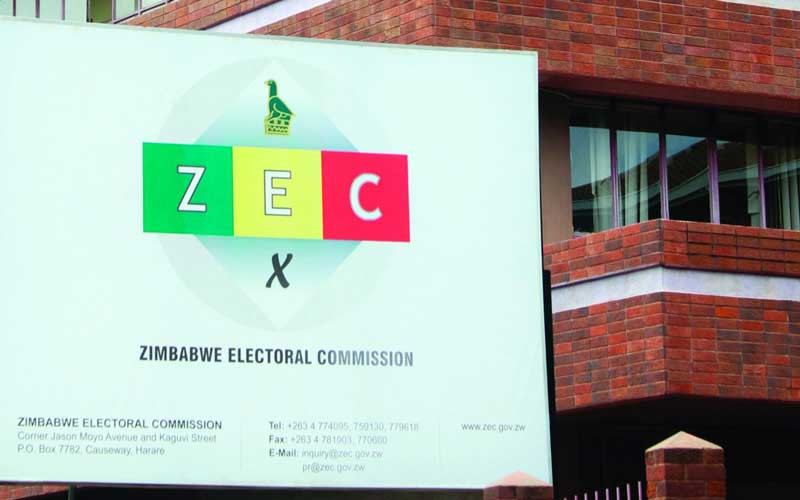
ALTHOUGH its meaning is fluid and interpreted differently by various people, democracy is a word that has dominated political rhetoric from the time of the Greek philosophers over 2 400 years ago.
Grecian political thinkers had divergent views on what democracy entails and whether it is a perfect governance system.
Prominent philosopher Plato did not fancy democracy, dismissing it as “rule by the rabble, unfit and unwashed”, while Aristotle believed in the wisdom of crowds.
Derived from the Greek word demos (people) and kratos (rule), democracy has been associated with a type of governance that is people-oriented, a fact made famous by the late former United States president, Abraham Lincoln, who noted that “democracy is a government of the people, by the people, and for the people”.
This has grown to be one of the significant tenets of democratic political systems across the globe.
Zimbabwe fancies itself as a constitutional and representative democracy implying that the authority of the majority is limited by legal and institutional means so that the rights of individuals and minorities are respected.
However, those walking the corridors of power have more often than not been accused of violating constitutional provisions, something that triggered analysts to conclude that there is selective application of the law meant to benefit a few elites.
The debate has been raging on the recently gazetted election nomination fees by the Zimbabwe Electoral Commission (Zec).
- Zim headed for a political dead heat in 2023
- Chamisa party defiant after ban
- Village Rhapsody: How Zimbabwe can improve governance
- News in depth: Partisan police force persecutes opposition, shields Zanu PF rogue elements
Keep Reading
According to the electoral management body, aspiring presidential candidates are expected to fork out US$20 000 — a 1 900% increase from the previous US$1 000.
Aspiring legislators have to part with US$1 000 up from US$50, while those wishing to contest in the senate and local authority elections must pay US$100.
No convincing reason has been provided for the spike in fees except the justification that the fees will deter chancers in the contest.
However, it can be argued that the exorbitant nomination fees are a laugh in the face of democracy as they fail to meet the test that courts might use to assess justifiability.
Veritas Zimbabwe, which provides information on the work of the Parliament of Zimbabwe and the laws of the land, posits that nomination fees can be deemed invalid if the fees are high.
“An old English judgment, still followed by our courts today, said that a decision, including a decision to fix a fee, will be regarded as grossly unreasonable if it is partial and unequal in its application to different classes, or; it is manifestly unjust, or; it discloses bad faith, or it involves such oppressive or gratuitous interference with peoples’ rights that it can find no justification in the minds of reasonable people,” read the Veritas Zimbabwe website in part.
In sync with Veritas’ assertions, analysts who spoke to the Zimbabwe Independent argue that the fees are not only selective, but also infringe upon people’s political rights.
Analyst Lazarus Sauti said Zec is eliticising democracy in Zimbabwe, adding that the electoral body’s undemocratic increase of nomination fees will, without an iota of doubt, deprive marginalised groups in Zimbabwe of their constitutional right to participate in political and electoral processes.
“The sharp increase by Zec will disenfranchise young people, women as well as persons with disabilities (PWDs) from running as candidates,” Sauti said.
“Most young people in Zimbabwe are unemployed; women and PWDs are facing stigma-based barriers that are inhibiting them from participating in elections. Consequently, by increasing nomination fees, Zec is worsening their plight.”
Section 67 of the constitution provides that: “… every Zimbabwean citizen who is of or over 18 years of age has the right to stand for election for public office and, if elected, to hold such office.”
Section 86 of the constitution notes that not all rights are absolute, but limitations to rights can only be effected: “In terms of a law of general application and to the extent that the limitation is fair, reasonable, necessary and justifiable in a democratic society based on openness, justice, human dignity, equality, and freedom …”
While individuals aspiring to be presidents and Members of Parliament will find the fees an uphill toll, political parties are bound to struggle.
The opposition Citizens Coalition for Change (CCC) and other political parties have to raise US$230 000 to field a presidential candidate (US$20 000) as well as US$210 000 to field MPs for 210 constituencies.
The restrictive nomination fees appear to violate the political rights of individuals and the justification given is not adequate to warrant a limitation to that right.
In the recent Kenyan election, male presidential aspirants paid Sh200 000 (US$1 662,51) while women, youth and people living with disabilities were scheduled to pay Sh100 000 (US$832,29).
Aspiring male candidates for a MP seat paid Sh20 000 (US$166,25), while women parted ways with Sh10 000 (U$83,13).
These fees in Kenya are a testament to the fact that the country values its citizen’s rights to openly contest for power in a plebiscite, something Zimbabwe should take a leaf from.
Political analyst Wallace Musaka said while the fees have been gazetted at a time when the country is experiencing economic challenges, the political office should not be open for pretenders.
“Political office is a highly esteemed office which requires commitment, seriousness, and a high level of dedication. As such, Zec’s nomination fees increase is a political checkmate to quasi politicians, money mongering politicians, who perceive campaigning for political office as an asset and money acquiring scheme,” he said.
“These hefty fees are coupled with overwhelming responsibility and are a price that would-be leaders have to pay in facilitating the development of their respective areas.
“The fees do not contaminate the constitutional fundamentals of the right to vote as pronounced in Section 67 of the constitution,” Musaka said.
He said there were likely to be fewer independent candidates, who will penetrate the political landscape.






